I have always been asked about the safety situation in Afghanistan and, by now, might have a word or two to offer. During our stay there, we were limited mainly to Kabul and its immediate surroundings, such as valleys or canyons that could be reached within a couple hours of driving. Keep in mind that right now is also the height of winter and many roads become impassable for extended periods of time. While I can’t personally speak for the rest of the country, I found Kabul and its surroundings safe enough to walk around unhindered by myself. I didn’t go out much at night because temperatures plummeted to subzero and it got brutally cold. But driving around at night, I noticed most streets empty; likely everyone else found it a little cold, too. At no time did I really feel uncomfortable with a situation, except once when my uncle Waheed ***image1***tried to give a little money to a desperate father with a little baby in his arms and a minor mob of nearby teenagers stormed over and yanked and tugged on us for a handout. Luckily our trusty Landcruiser was nearby and we got away unscathed. That was an important lesson in charity: choose location and recipients wisely.
- Two Afghan boys, the one on the left probably an ethnic Pashtun, the one on the right an ethnic Hazara, are all smiles for the camera.
- A woman still wearing a burqa is begging in subfreezing weather.
- A private armed mercenary on duty with an AK 47, still a relatively common sight in Kabul.
- The breathtakingly beautiful Paghman Valley with a backdrop of Hindukusch Mountains and a destroyed village up ahead on the road.
- Also bombed by the Russians in the 1980’s, this village is located in the Kodaman Valley, north of Kabul.
- Straw and mud walls guard this grape yard in the Kodaman Valley.
- Sadly, landmines continue to take life and limb to this day in Afghanistan.
Speaking the language undoubtedly helped me feel very comfortable there. I speak Farsi with a Kabul accent and it threw a lot of local people off, because so many of them are originally from other parts of Afghanistan and they have very slight differences in the way they talk. My particular accent does not seem to be very common anymore in Afghanistan. So I was always asked where I live now. Enough former residents of Kabul have visited the city in the last four years that the current locals can tell if they are now living elsewhere.
Even if these visiting expatriates dress in traditional Afghan clothing, the locals can still pinpoint them as soon as they open their mouths. I always found people to be very curious about how I live in a country like America, if I am really rich, what I studied, if I am married, and why I don’t return to the watan, or homeland, to be of service. They wonder why I am not married; why I don’t consider myself rich, even though I make vastly more money than most of them do. The curiosity of people is really boundless, especially now that the repressive Taliban have been ousted and information and culture can be exchanged more or less freely. Many want to know if the people of Europe and America are also as nice as their soldiers are. I was a little surprised to hear that, but shouldn’t have been considering that previous foreign soldiers, such as the Russians or even Arab and Pakistani Taliban, were anything but nice. One must also keep in mind that by far most Afghans are sick and tired of constant war and see NATO and the Americans as a way to keep peace in this volatile region. I heard people in Kabul call these soldiers shirinzoban, sweet tongued, meaning that they behave decently toward civilians. Maybe this is in contrast to what we hear in the news, maybe I have a skewed perception because I live in a NATO country, but the general feeling toward the foreign military was positive. They keep the hated Taliban far away and on the run. They keep the hated Russians from trying to exert influence again.
As happy as people seem to be rid of their oppressors and even elect a government of their own choosing, I found heartfelt laughter a rarity among those who are old enough to have experienced war. I noticed that, when I took a few posed photos of people we knew and asked them to smile for the camera. No one did.
This occurred on several occasions. So I started to go around and ask people to smile for the camera and found that it was mostly kids who still had that capacity for spontaneous laughter and smiles. At least there is hope in that. There must be unfathomable psychological damage to these people that may never heal or take decades to diminish. Every single person I met had a relative or friend or acquaintance somehow killed in all these years of conflict. Maybe Vietnam could possibly be a rough guide, as I found people there to be relatively even keeled in their ability to express joy. Of course the bomb craters of Vietnam have long been overgrown or built upon, while in Afghanistan they are still widely visible, literally and figuratively.
I cannot ignore the positive developments, however: faded posters of political candidates still clung to walls and poles all over Kabul. The currency has become relatively stable and is accepted everywhere alongside the US Dollar. Movie theaters, TV stations, and music stores have mushroomed with a vengeance after the demise of the Taliban, during whose reign all of it was forbidden. People have taken to rebuilding the country on their own, when the government has fallen short or bogged down in bureaucracy and corruption. As pathetic as it sounds that most Kabul neighborhoods have electric power only every other day, that is still vast improvement over the past when power became nonexistent for weeks at a time. One out of three former hydroelectric power plants has been restored to its previous capacity so far. Everyone is hoping that the other two go on line soon, so that daily blackouts become a thing of the past and those noisy generators also disappear.
One last, but very important aspect of Afghanistan that I wanted to mention, are the various ethnic groups that make up the country. Many are completely different from another by the language they speak (although Farsi and its sister language Pashto are spoken by everyone), by the way they dress, by their facial features, and by the various trades they engage in. The majority of Afghans are from the light complexioned and black haired Pashtun ethnic group, which has supplied the ruling dynasties in the past two centuries. To answer the inevitable question, I am of Pashtun ethnicity as well. Tajiks make up the second largest ethnic group and they are Farsi speakers and share a lot of heritage with ancient Persia. The Turkmen originally came from the northwestern steppes of Central Asia and speak a Turkic language in addition to Farsi. The Uzbek ethnic group also originated in the mountains and steppes of Central Asia. You wouldn’t be wrong to guess that they speak Uzbeki, as well as Farsi. Then there are the Hazara of Mongolian descent who speak strictly Farsi. Additional ethnicities include the light haired Nuristanis, reputed to be of Greek-Bactrian heritage. All of them are subdivided into various tribes and clans that have on occasion clashed violently.
By far the strongest glue that keeps this rag tag social fabric together is Islam. That is the one thing all of these ethnic groups have in common. Beyond that, even Islam divides itself into the Sunni and Shia factions, the former of which make up the majority of Afghans. Mosques, especially ancient ones with blue domes and intricate tile work, can be found everywhere. The one type of construction the Taliban promoted was that of mosques, but even then, there are quite a few more going up in Kabul alone since their fall.
Overall I had an amazing and educational time in Afghanistan and wouldn’t hesitate to go back soon again. Except next time I would like to travel there during a warmer season and visit other parts of the country, too. I have also been asked many times, if it is safe for non Afghans to travel there. Kabul seemed safe enough for any foreigner to go and I spotted quite a few of them, too. Again, I can’t speak for the rest of the country, although the local word is that most areas except the border areas with Pakistan and certain poppy growing areas have been relatively trouble free. But in a country like Afghanistan it is a good idea to find an Afghan companion who can explain your purpose to locals, especially in the country side. And if you are a woman, a related male companion for trips to the country side is virtually a must. In cities, however, that is really not the case for women anymore. As strong as the sense of hospitality toward strangers might be, there is sometimes also a sense of suspicion as to what yet another foreigner might be up to. Maybe that shouldn’t be so surprising, given all the conflicts over the past three decades.
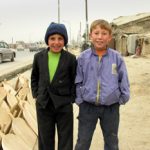

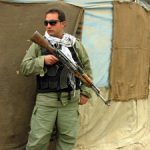
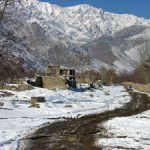
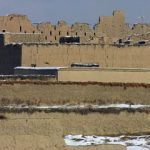

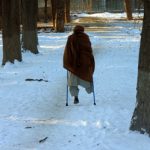
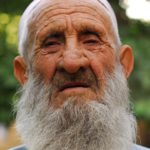
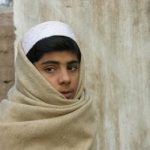

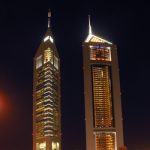

Leave a Reply